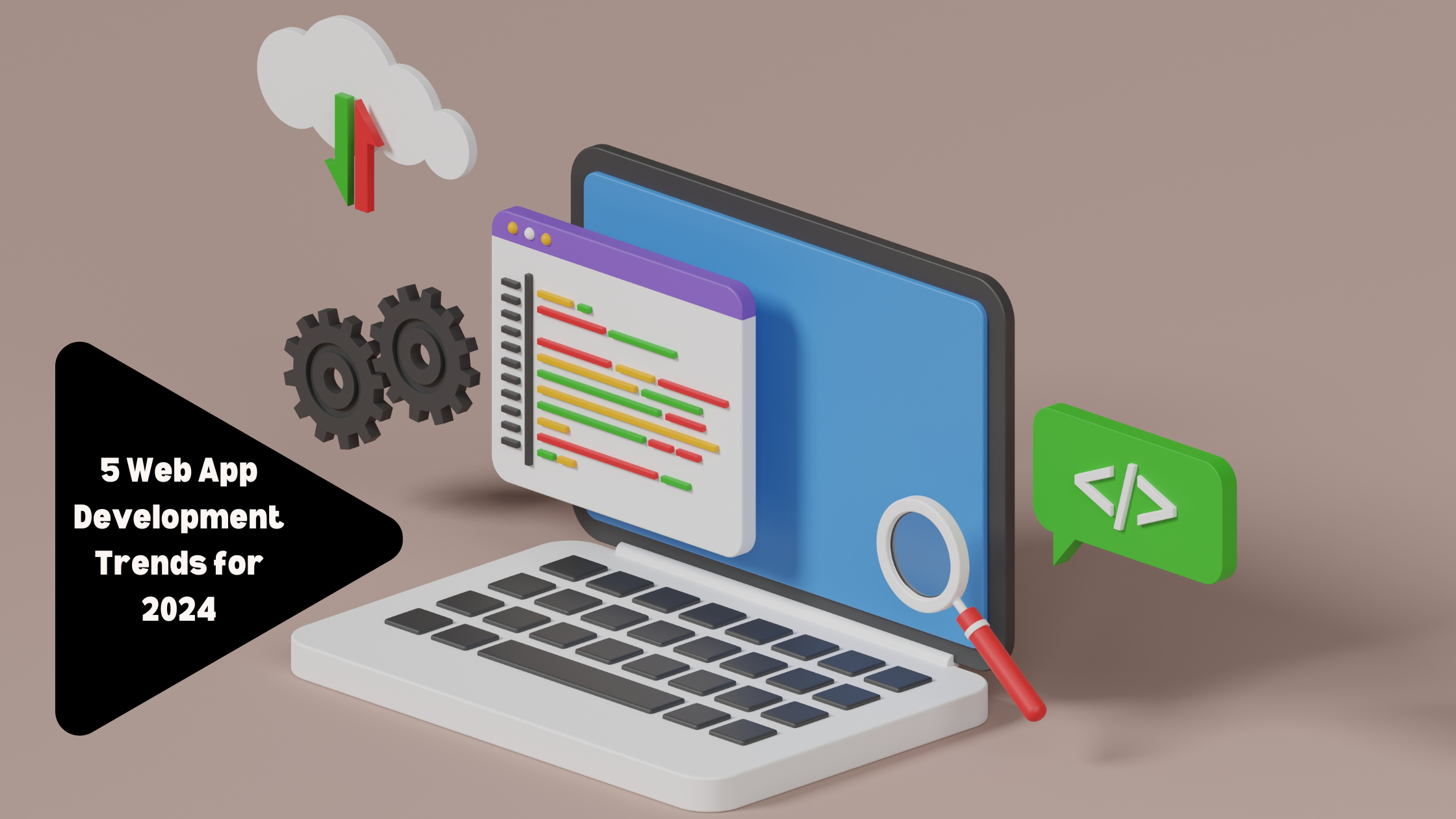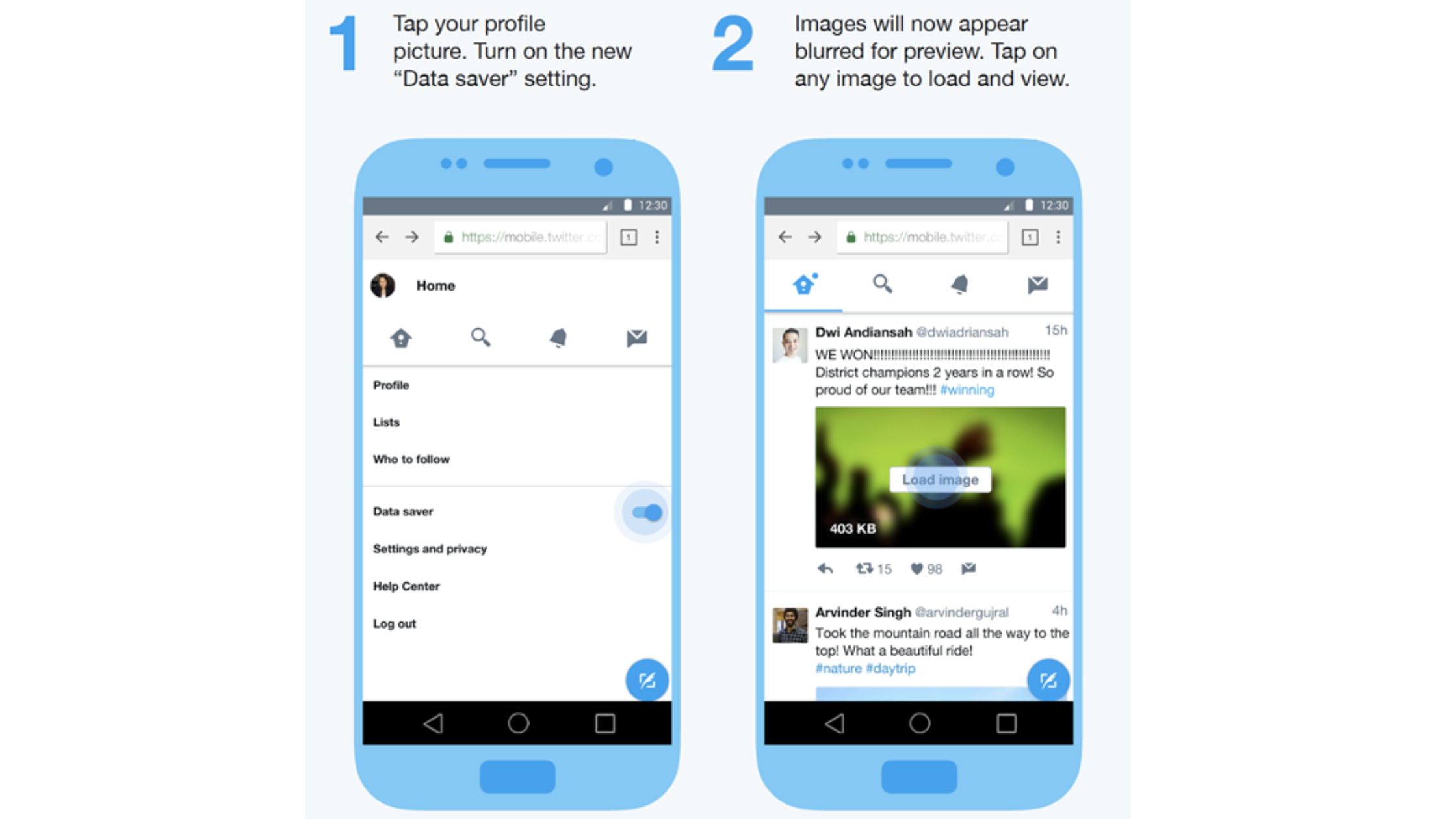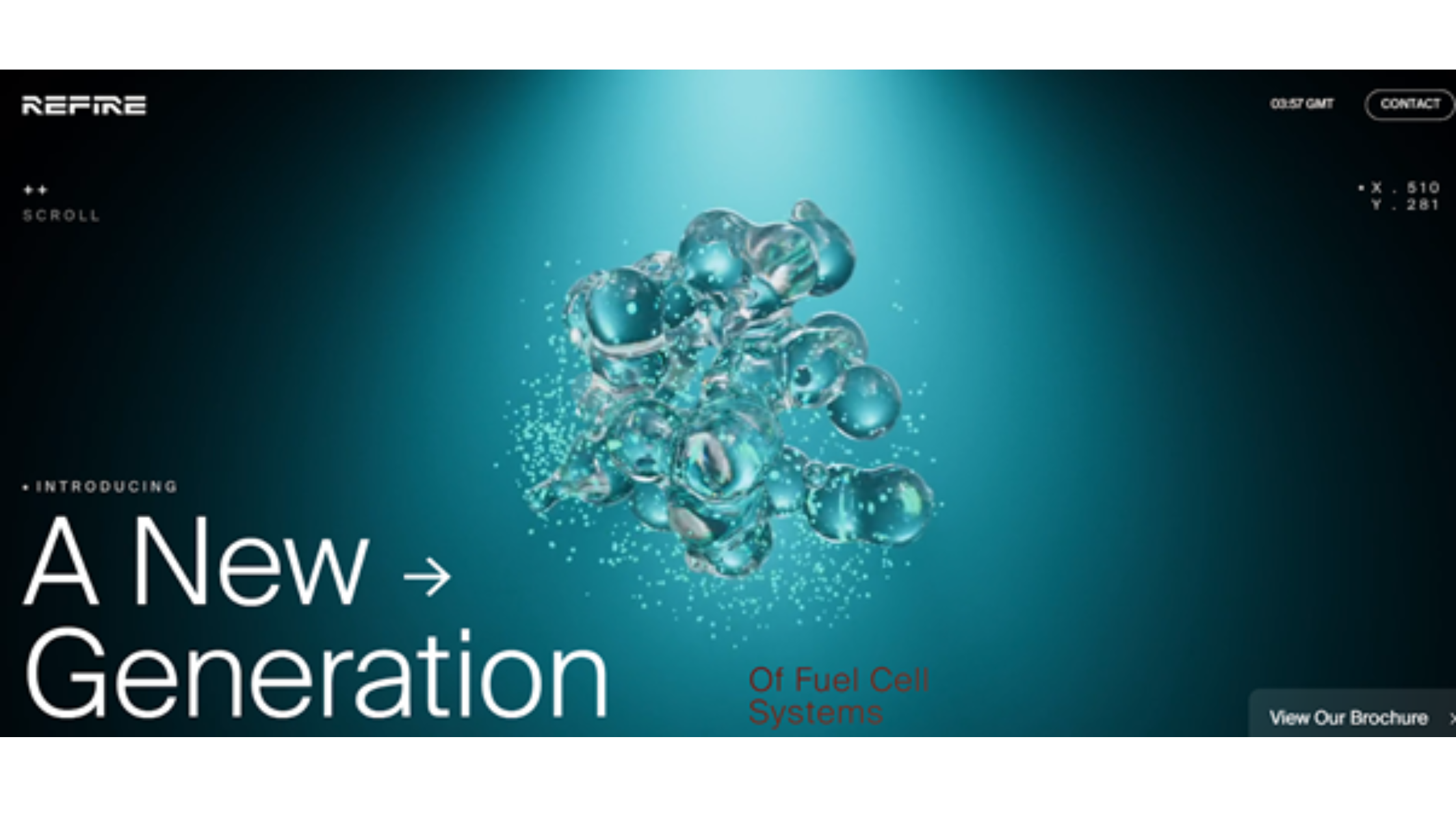MODIFIED ON: May 17, 2024 / ALIGNMINDS TECHNOLOGIES / 0 COMMENTS

The way users engage with a brand’s web app has evolved significantly over the past few years. Users now prefer a distinct preference for engaging with chatbots as their go-to support for query resolution and support. Well, this is just one of the modern preferences that we are talking about. The blog piece will take a look at the top web app development trends that are expected to dominate in 2024. But before we discuss them, let’s quickly understand the concept of web app development. Read on!
What is web app development?
Web app development is defined as the creation of software applications that operate on web browsers. It involves the combination of designing, programming and testing to build dynamic and interactive websites. Web app development can range from simple websites to complex enterprise-level systems. The choice of tools and technologies depends on the unique business requirements and goals. Social media platforms like Facebook, Twitter, and Instagram leverage complex web applications to connect, share content, and interact online. Content relationship management systems like Salesforce and Hubspot are web-based CRMs that enable businesses to manage interactions with customers, track leads, and analyze data.
Web app development for 2024 – Top trends
• Blockchain
The global blockchain technology market is predicted to reach 1235.71 billion US dollars by 2030. It is one of the most significant trends for the future-ready development of web apps. Blockchain technology is defined as a decentralized and distributed ledger system that enables secured transactions across various computer systems. It involves developing decentralized applications that run on a peer-to-peer network instead of centralized servers. The technology allows for the creation of digital tokens that represent real-world assets within a specific application. Blockchain is best suited for supply chain applications – thanks to its high transparency and traceability. Web apps utilizing blockchain can facilitate end-to-end visibility, reduce fraud, and improve supply chain efficiency.

Credit: Freepik
• Progressive Web Apps
Progressive Web Apps (PWAs) offer a modern approach to web app innovation. They combine the best capabilities of both web and native mobile applications. They are designed to work seamlessly across different platforms and devices. The cross-platform compatibility reduces the need for different development efforts for different operating systems. Progressive web apps are built with a responsive design approach, ensuring that the UI adapts to various screen sizes and orientations. Also, PWAs are suited to work offline or in low-network conditions. They leverage service workers, which are scripts that run in the background, to cache content and enable offline access.
Another important aspect of progressive web apps is that they are discoverable through web search engines. Users can access a PWA by simply clicking on a link or bookmarking it. This makes it more accessible and user-friendly.
Twitter Lite is a popular example of a progressive web app.

Credit: Twitter
• AI chatbots
The global chatbot market is expected to grow at a CAGR of 23.3% by 2030. 84% of businesses believe that AI chatbots will be very increasingly relevant for customer communication. AI chatbots are one of the significant features of next-gen web apps. They enable dynamic and real-time interactions with users. They are capable of answering queries, providing product/service information, and assisting users in navigating through web applications. Unlike human customer support agents, they can operate 24/7 without the need for breaks. This round-the-clock availability ensures that users can gain information or assistance at any time, contributing to optimized customer service.
Another benefit of leveraging AI chatbots for web app innovation is that it automates routine or repetitive tasks. They can handle common queries, guide users through processes, and perform specific functions within a web app. This allows human resources to focus on more complex tasks like business expansion and growth. Furthermore, AI-powered chatbots can analyze user data and preferences to provide personalized recommendations, content, or assistance.

Credit: Freepik
• Single-page applications
Rather than navigating through multiple pages, single-page applications load a single HTML page and dynamically update the content. This enables a more engaging experience for users. Single-page applications often rely on APIs to fetch data and update content, thereby reducing the load on the server. They leverage client-side rendering and JavaScript frameworks to create highly interactive and dynamic user interfaces. Users can enjoy features such as instant form validation, real-time updates, engaging animations, and more.
Refire – an international hydro energy technology company is a perfect example of a single-page website application.

• Video content
Did you know that 82.5% of video traffic is driven by videos? Users increasingly turn to videos for information, entertainment, and engagement. No wonder videos are one of the top web app development trends in 2024. Integrating videos into web applications can capture and maintain user interest for longer time durations. Videos offer an immersive and dynamic way to convey business messaging. Web applications, especially those focused on e-learning, can benefit from incorporating video lectures, tutorials, and demonstrations to enhance learning processes. Videos are great for telling compelling brand stories. They can be used to showcase products, share brand narratives, and connect with users on a more personal and emotional level.
Future-ready development with AlignMinds
Here at AlignMinds, we employ agile methodologies, enabling flexible and iterative web development processes. We are equipped with full-stack development expertise and can cover both front-end and back-end technologies across various platforms. Our team follows a mature and well-defined delivery process which guarantees that client requirements are met consistently and within agreed-upon timelines. We believe in a sprint-based development approach. It means businesses are provided with measurable deliveries at the end of each sprint. Our client portfolio spans across diverse industries such as healthcare, logistics, media, and retail.
Initiate a conversation today to discuss how we help you develop a modern web application that can keep your customers hooked to your brand.
Leave a reply
Your email address will not be published.
-
Recent Posts
- The Ultimate 4-Step Guide to Modernizing Your Applications
- The 12 Most Popular Computer Vision Tools in 2024
- How MLOps is Transforming Businesses in 2024
- The Ultimate Guide to Product Engineering Services for Businesses
- 5 Top Use Cases of Computer Vision in the Hospitality Industry
-
Categories
- MVP Development (5)
- AlignMinds (55)
- Operating Systems (1)
- Android POS (3)
- Application Hosting (1)
- Artificial Intelligence (23)
- Big Data (2)
- Blockchain (1)
- Cloud Application Development (7)
- Software Development (29)
- Software Testing (9)
- Strategy & User Experience Design (4)
- Web Application Development (23)
- Cyber Security (6)
- Outsourcing (7)
- Programming Languages (3)
- DevOps (5)
- Software Designing (6)
- How to Code (4)
- Internet of Things (1)
- Machine Learning (2)
- Mobile App Marketing (4)
- Mobile Application Development (18)
- Mobile Applications (5)







